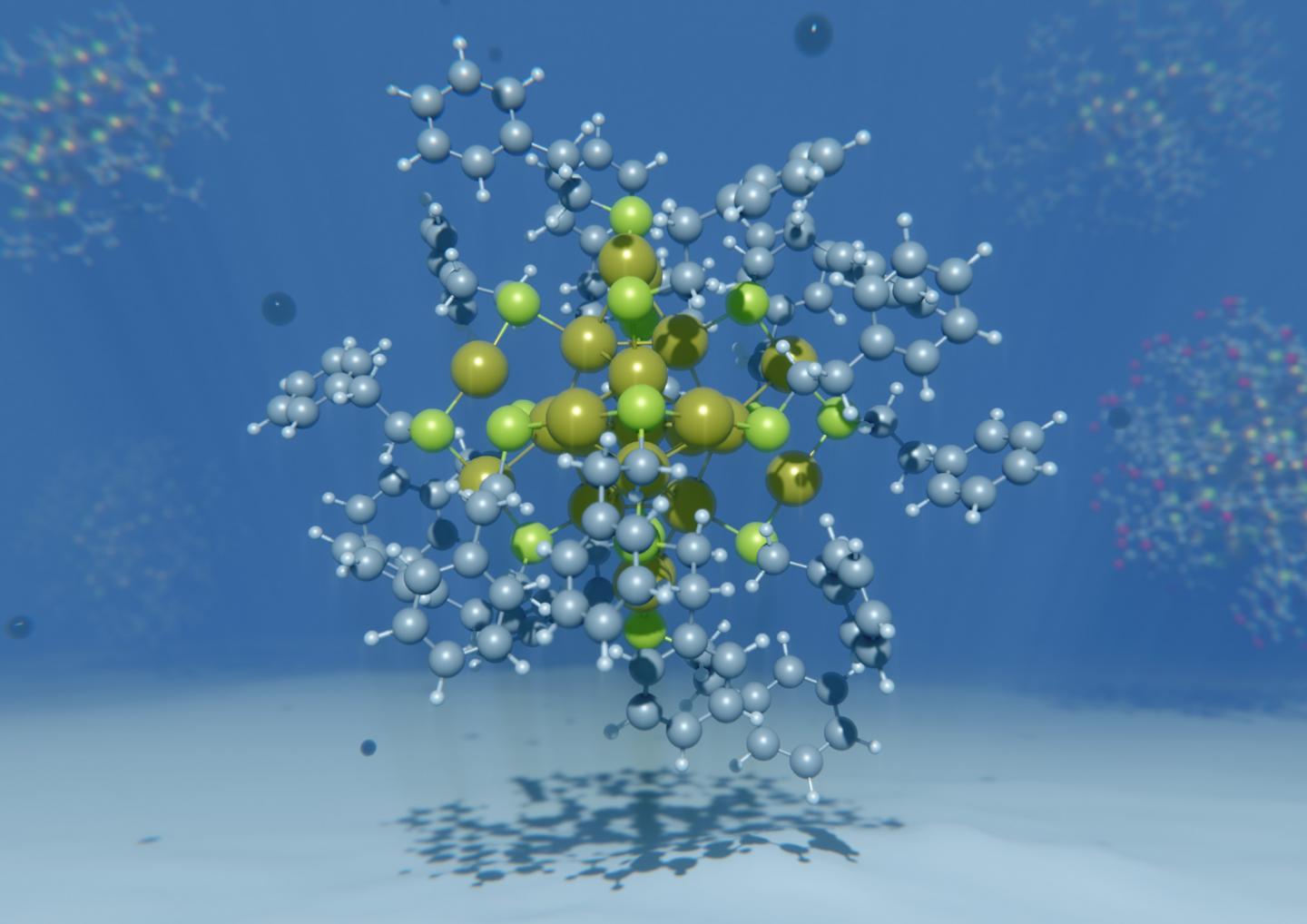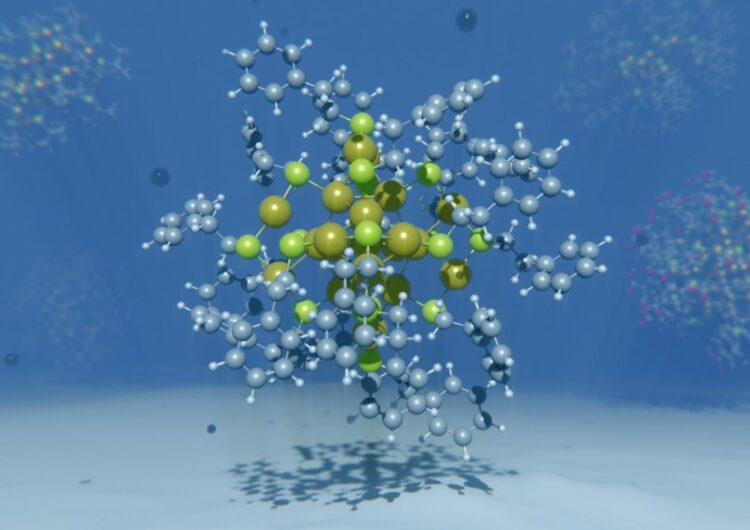Mpourmpakis’s CANELa lab work featured on cover of the Journal Dalton Transactions and selected as hot article

Credit: Mpourmpakis and Cowan
A field studying something very small is becoming very big: In the last decade, the field of nanoparticle research has exploded. At about one nanometer in size, nanoparticles are 100,000 times smaller than the width a strand of human hair and cannot be seen with the naked eye, but researchers are discovering broad uses for them in fields ranging from bioimaging to energy and the environment.
Working at this scale, it is difficult to be precise; however, the Computer-Aided Nano and Energy Lab (CANELa) at the University of Pittsburgh’s Swanson School of Engineering is advancing the field, modeling metal nanoclusters that are atomically precise in structure. An article highlighting their work and its influence on the field of nanoparticles is featured on the cover of the latest issue of Dalton Transactions.
“One major benefit of these very small systems is that by knowing their exact structure, we can apply very accurate theory,” said Giannis “Yanni” Mpourmpakis, Bicentennial Alumni Faculty Fellow and associate professor of chemical engineering, who leads the CANELa. “With theory we can then investigate how properties of nanoclusters depend on their structure.”
Ligand-protected metal nanoclusters are a unique class of nanomaterials that are sometimes referred to as “magic size” nanoclusters because of their high stability when they have specific compositions. One of the key advances their lab has made to the field, with funding from the National Science Foundation, is in modeling the specific number of gold atoms stabilized by a specific number of ligands, on the surface.
“With larger nanoparticles, researchers may have an estimate of how many atoms exist on each structure, but our modelling of these nanoclusters is exact. We can write out the precise molecular formula,” explained Michael Cowan, graduate student in the CANELa and lead author on the article. “If you know the exact structure of small systems you can tailor them to create active sites for catalysis, which is what our lab focuses on most.”
Predicting new alloys and previously undiscovered magic sizes is the next step that the field–and the lab–will need to tackle. The lab uses computational chemistry methods to model known nanoclusters, but creating a complete database of nanocluster structure, property and synthesis parameters will be the next step to apply machine learning and create a prediction framework.
###
The Frontier article, titled “Toward elucidating structure of ligand-protected nanoclusters,” (DOI: 10.1039/D0DT01418D) was published in the journal Dalton Transactions by the Royal Society of Chemistry and was authored by Cowan and Mpourmpakis.
Media Contact
Maggie Pavlick
[email protected]
Original Source
https:/
Related Journal Article
http://dx.





